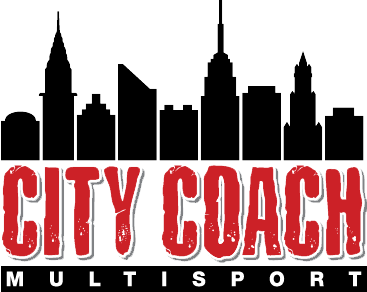Achieving Personal Best: Jeff Weinstein
"That deep practice concept is interesting. It describes my training process. I set a race date, set a goal time, see how close I come, and then move on to the next one. It can often be frustrating to fall short, but when you do hit your goals, it's amazing. It's important to set ambitious, but reasonable goals."
While we have many talented athletes at The Dalton School (and a stunning number of those in Sin Quee/Neiers House—I’m just a little biased), few of them have reached the level that Dalton alumnus Jeffrey Weinstein has. It is rare to find a runner of his caliber in any private school setting.
At 22 years old, Jeff ran 2:33:51 in his debut marathon last year in NY, placing him an impressive 2nd (out of 718) in his age group and 68th out of 30,000+ men. Having run cross country and track at UPenn, Jeff now runs for the New York Athletic Club (NYAC) and is teammates with the illustrious Meb Keflezighi. Jeff has seen success in distances ranging from the mile (4:08) to the marathon. I had the pleasure of speaking to Jeff while he reflected on his ascent in running.
Finding a community of like-minded folks was instrumental in helping Jeff make the leap into a top runner. He was training without even really realizing he was training—acquiring knowledge, learning fundamentals, and assessing how much more work he needed to do. Below are excerpts from the interview.
On getting started:
There were a couple of things that opened my eyes. I didn't run cross-country until sophomore year because I didn't even know what it was. [Dalton] Coach Markovitz taught me a lot about running, and showed me that there was so much more to the sport. Combine that with going to running camp over the summer with the Collegiate runners, and I realized that there was a huge running community out there, and that I would have to run a lot more than 20 miles a week to compete with these guys. The first time I realized I could get recruited for running was my indoor season junior year in HS, when I started dropping major chunks off of my mile time. I realized that running could help get me into a good school, and that only added to my focus.
On improving:
Regarding how I got better, the answer is mileage. At Dalton, we didn’t understand how much harder everyone else was working. That's what running camp did for me. I saw kids the same age as me doing 80-100 miles a week. When I saw that, I knew that I wasn't working nearly as hard as I thought I was.
[It’s important to note that high mileage can increase the risk of burnout and injury, especially for a high school runner; however, that mileage really had an impact on Jeff, and showed him how much more commitment was necessary on his part.]
On setting a goal:
Regarding the marathon, I figured that since I was out of college, I could start to pursue other races than the mile/1500 meters. My dad wanted to do his first marathon, so he persuaded me to do it too. I figured it could only help with my training for track, since in the summer/fall I'd be doing that kind of mileage anyway. I set a goal of 2:30, because I thought it was tough, yet reasonable. I didn't see the point of half-assing it, with running I always try to "go big or go home". I don't see the point of slacking off and being mediocre.
On training:
That deep practice concept is interesting. It describes my training process. I set a race date, set a goal time, see how close I come, and then move on to the next one. It can often be frustrating to fall short, but when you do hit your goals, it's amazing. It's important to set ambitious, but reasonable goals.
On failure:
I do know failure in running, quite well in fact. Running is really the realm where my great successes and failures lie. Every runner has their setbacks. I'm dealing with one now, injury.
A different type of failure that I faced while running was at our conference meets. In my four years at Penn, we came 3rd, last, last and 4th as a team in cross-country. We got our asses kicked, and it sucked. But we kept on training, hoping that next time would be better. My junior year, I ran our conference cross country meet 3 minutes slower than I wanted to, but was able to bounce back indoors and set PRs in every distance. Even though my team wasn't placing well, there was still room for individual improvement, and if anything, we were motivated more because we wanted to show that we were so much better than those results indicated.
On moving forward:
My advice to high schoolers would be to connect with the greater running community. Letsrun.com and flotrack.org can show them how large the running community is, and are invaluable sources for info about training, injuries, running news and more. Also, be conservative in your training. Running is a grind. It's about weeks and months of consistent training, not one or two super sessions.
